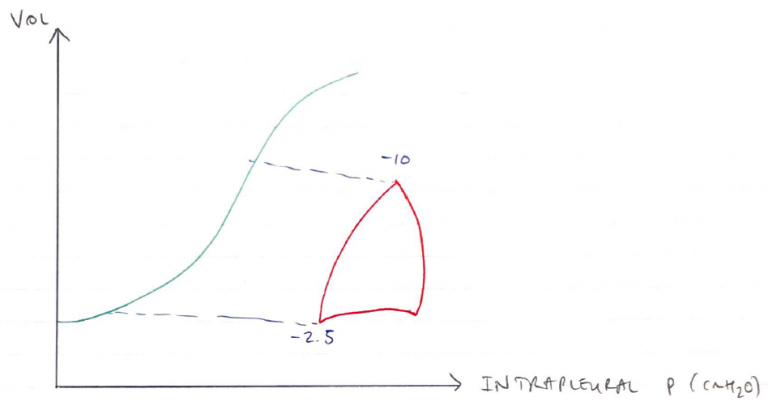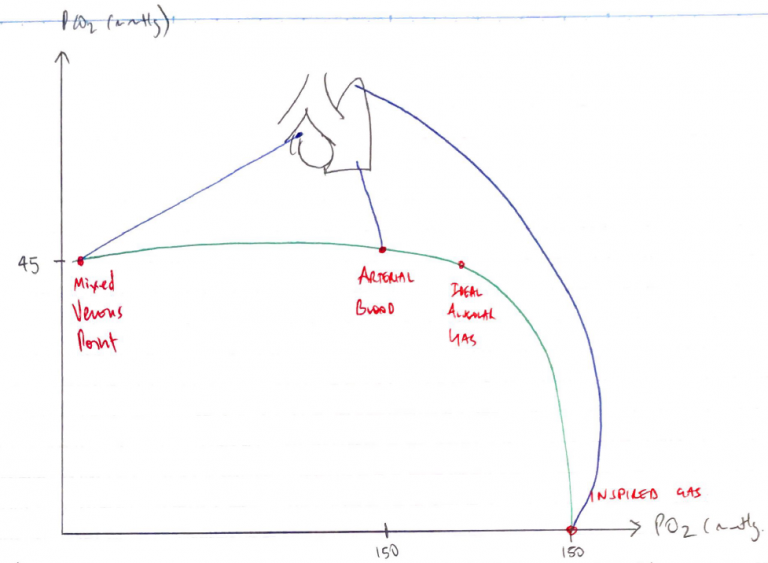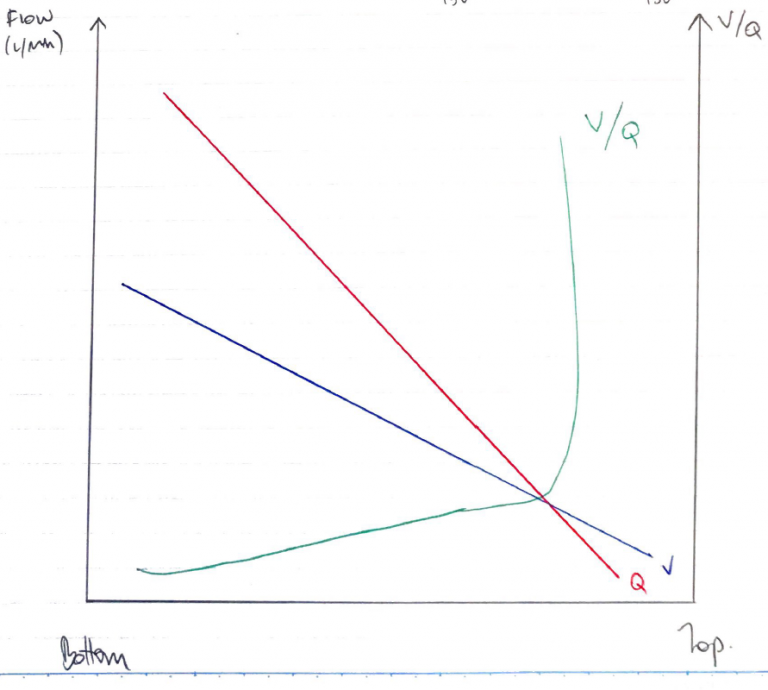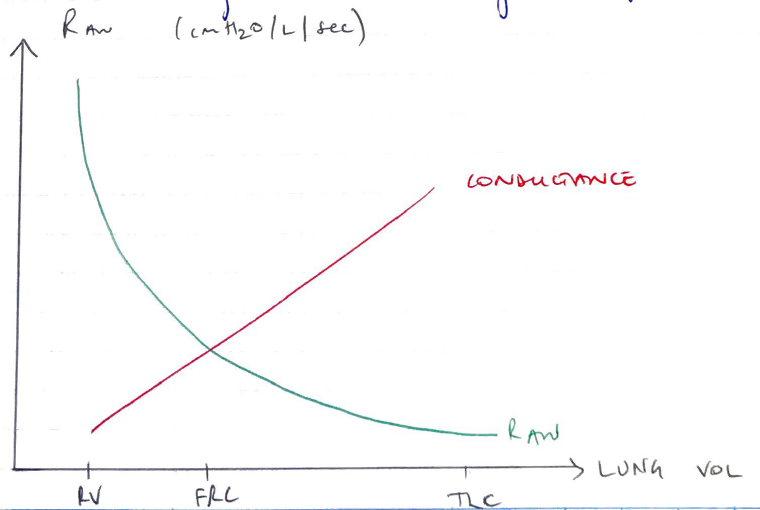F6ii / 16A03: Compare the physiology of the apex with base of the lung in the upright position
16A03: Exam Report
Compare the physiology of the apex of the lung with the base of the lung in the upright position.
33% of candidates passed this question.
The majority of candidates gave extensive detail on West’s zones of the lungs and did not describe other parameters that vary from base to apex. Ventilation, resistance, compliance, alveolar and lung size all vary. Some candidates mixed up the changes at the apex versus the base.
F6ii / 16A03: Compare the physiology of the apex with base of the lung in the upright position
Perfusion
- Pulmonary BF operates in a low P system (mPAP 15mmHg)
- Erect posture → 30cmH2O (23mmHg difference b/w apex + base)
- Due to hydrostatic P
- P arterial & venous P ↑from apex → base
- Different areas of BF KA WEST’S ZONES
Zone 1: Pa > Pa > Pv
- Caps collapse → nil BF
- Alveolar DS
Zone 2: Pa > Pa > Pv
- ↑hydrostatic P ∴↑Pa & Pv
- BF determined by pressure different PA & Pa
- Recruitment dominates
Zone 3: Pa > Pv > Pa
- Further ↑hydrostatic P
- BF depends on P difference between Pa & PV
- Distention dominates
Zone 4
- @ low lung volumes
- ↓radial traction
- ↑↑PVR
- No BF
Alveolar Gases/PH
- V & Q ↑as you move from Apex → Base
- ∴high V/Q apex, low V/Q @ base
- PO2 decreases from apex to base
- PCO2 increases from apex to base, but much less ∆PO2
- ∴ ↓pH with ↑CO2 from apex → base
PO2
PCO2
pH
Apex
132
28
7.51
Base
95
42
7.39
Lung Volume
- Increases from Apex → base, due to ↑compliance
NB:
PO2 ↓ from apex → base, even though ventilation is less at apex
This is because alveoli with no perfusion (WZ1) will have PO2/PCO2 values same as inspired gas because there’s no gas exchange to alter composition of inspired gas
Alveoli with no ventilation → have PO2/PCO2 same as mixed venous blood because trapped air in unventilated alveoli will equilibrate with mixed venous blood
- Author: Krisoula Zahariou



